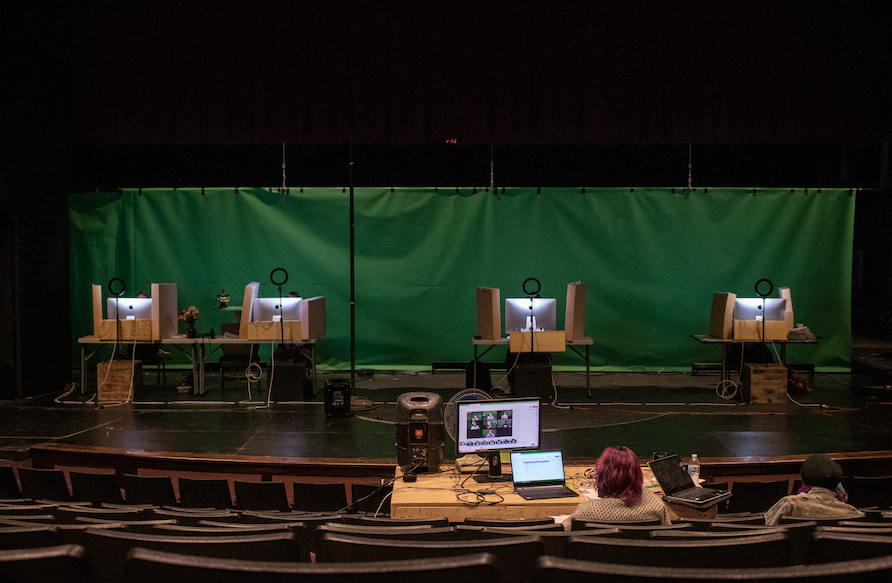The outbreak of COVID-19 has changed almost every aspect of our lives. From our work to our school, to how we shop and where we eat, but few industries have been impacted as hard as the world of theatre. In a matter of days, shows all around the world were forced to close, and hundreds of actors, technicians and managers found themselves out of work. But now, as we try to return to a somewhat normal way of living, theaters are finding new ways to put on shows, and Winthrop University’s drama department is no exception.
This season, directors have turned to virtual rehearsals and virtual shows in order to continue presenting theatrical art. “The Women of Lockerbie” was a virtual process from start to finish.
According to its director Wren Brooke, a junior theatre major, this was out of concern for both the audience and cast members.
“I took it upon myself to make my production entirely virtual…there was absolutely no expectation to do any work together in person,” they said.
This meant having virtual auditions, virtual rehearsals, and ultimately, filming the play.
However, this by no means made this production a movie rather than a play. Brooke said “we’re calling it pre-recorded virtual theater,” and that through-out the entire process, the cast was dedicated to “retaining that creative process.”
“The Women of Lockerbie” cast member Ally Baumgartner, a junior theatre performance major, explained how the virtuality of it all didn’t necessarily hinder the process, and, in some cases, even made it a better experience. She said, “I preferred the virtual auditions…it kind of took away a little bit from the nerves…you didn’t have to think about who was going before you or who is going after.”
Additionally, she spoke about her hope for the future of theater in the situation created by COVID-19, “it’s kind of like a new frontier of what theater can be, will be. If this is the new normal I’m not upset.”
The upcoming production of Rossum’s “Universal Robots” has been somewhat less virtual, with more rehearsals in the theater.
Cody Bloomer, a senior theatre education major and one of the cast members, explained that during their rehearsals, “we’re onstage but we’re all separated in our different pods in front of computer screens, so we’re all socially distanced but in the same space.”
The director of this production, professor Christopher Brown, also spoke of how some members of the cast were comfortable with interacting more physically because “several of the actors in the cast live together or are already in social groups where they see each other, so they’re already kind of exposed to each other.”
The cast of this show intends to live-stream their performances in order to give audiences, in the words of Brown, “as close to a theatrical experience as we could.”
However, while technology has proven to be their biggest ally, it may also be their downfall. According to everyone interviewed, the unpredictability of technology has been a great complication. WiFi can be spotty, especially on a college campus with thousands of students trying to access it all at once.
Baumgartner explained that “acting is reacting…so when you’re waiting for somebody to say their line, and if a mic cuts out or if it’s just taking a second for the other person to hear the line, there’s just that small second of dead space that really it’s a make or break situation sometimes.”
But overcoming these issues can contribute to the sense of community that theater can build.
Bloomer said, “It’s always been a very supportive environment because as weird and as frustrating as online things can be sometimes, we’re all struggling together and we’re all working through it together.”
Winthrop’s College of Visual and Performing Arts is proud to present Rossum’s “Universal Robots” this week, with shows on Oct. 8-10 at 7:30 p.m. and Oct. 11 at 2 p.m. Tickets are now available at www.Tix4U.com/event-details/40371.
Photo by Olivia Esselman.




